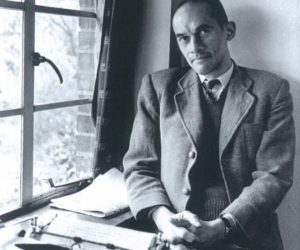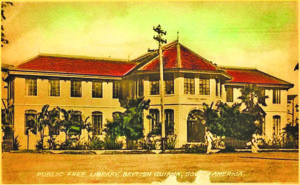By Petamber Persaud
Very often, and too often with immense gratification, I get the urge to put aside the reading of current books in preference to delving into those published a while back, especially reprinted rare and out-of-print material. This browsing is not too difficult for me for I am accustomed to ‘marking up’ my own books, highlighting words, phrases and extracts of interest. For instance, while flicking through “Beacons of Excellence: The Edgar Mittelholzer Memorial Lectures – Volume 3, 1986 – 2013”, I stumbled on the following passage:
One of the most exciting things about literature is the way earlier texts… are rediscovered or re-read in the light of new developments in writing and reading. Writing, in other words, is not a once for all time act that closes with the final full stop, and nor is reading a fixed or stable single act of passive reception. Reading is fluid, adaptive, processual and constantly changing according to the needs of the times.


The above passage was delivered by Dr Jane Bryce in 2013 at the 15th lecture series of the Edgar Mittelholzer Memorial Lectures and published by the Caribbean Press in 2014. The “Beacons of Excellence”, in three volumes, were compiled and edited by Andrew O. Lindsay.
The idea of The Caribbean Press surfaced during Guyana’s hosting of Carifesta X in 2008. The idea was later fleshed out by former President, Bharrat Jagdeo, and Professor David Dabydeen. Within months, the idea was manifested with the printing of the first 12 titles of The Guyana Classics Library, which included “The Discovery of Guiana” by Sir Walter Ralegh, first published in 1596; “The Coolie, his right and wrongs” by John Edward Jenkins; “Canoe and Camp Life in British Guiana” by Charles Barrington Brown; “The Chinese in British Guiana” by Sir Cecil Clementi; and “Guianese Poetry: covering the hundred years’ period, 1831-1931” by N. E. Cameron.
Each title carried its own scholarly introduction and a series preface. The series preface, written by Jagdeo, is instructive and informative. This preface declared that “The Guyana Classics Library will republish out-of-print poetry, novels and travelogues so as to remind us of our literary heritage, and it will also remind us of our reputation for scholarship in the fields of history, anthropology, sociology and politics, through the reprinting of seminal works in these subjects. The Series builds upon previous Guyanese endeavours, like the institution of CARIFESTA, and the Guyana Prize. I am delighted that my government has originated the project ….so that all Guyanese can appreciate our monumental achievement in moving from Exploitation to Expression…”
While searching for material of interest concerning the National Library, which is celebrating its 108th anniversary – ‘In Service To The Community’ – I discovered the following pieces in Kyk-over-al, issue 8, June 1949:
The Reference Department
The policy of all libraries is that no one should be allowed to leave without having either received the information for which he came or the knowledge where he may find it…the words “No”, “We haven’t it”, “I don’t know”, should never be heard. We try to live up to that rule, but of course, there are limitations imposed by the collection of sources at hand, and our Reference Library has still a lot more to grow, but we try to do our best at all times.
The Young People’s Section
The other day while looking through a book on sewing … I came across a scrap of material with some stitching one it. This had been demonstrated in the book and obviously the borrower had been painstakingly practicing what was shown. This set us thinking and gave us an idea. The word “competition” kept going through our minds. With the result, we soon hope to have a competition…Any piece of work, which they have done…and which they learnt through a library book, we shall ask to be presented to us for a display at an exhibition at which two prizes…We aim at encouraging them to be interested in what they read…
In a previous article about the National Library, I highlighted the contribution of Andrew Carnegie indicating that “his is not the only name of substance nor is his most fundamental gift of establishing the library the only noteworthy contribution carrying the library into its 108th anniversary this September in the year 2017”, inferring that there are many other signal and significant contributions. For instance, the first 50 years in the life of the library, its destiny fell into the hands of the first two librarians: Ms Emily Murray (1909 – 1940) and Ms Ruby Franker (1942–1962).
When we think about books and libraries, we seldom spare a thought for the custodians of books and libraries. These custodians play the most vital of roles in maintaining the relevance of books and libraries. (To be continued)
Responses to this author telephone (592) 226-0065 or email: oraltradition2002@yahoo.com



